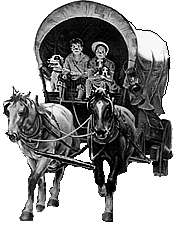- they do not give themselves to the camera, they suffer it -
PIONEER PHOTOGRAPH
- by Jim Dooley
They stand under the tall trees in the rain.
Behind them, the river slides through the gums.
They are not doing anything, they are just being there.
Some wear felt hats, and the raindrops drop from the brims to the sleeves and arms and cuffs.
Their trousers grow stiff with water, and their boots thick with the rain.
But the spuds are in. This is their land.
Against the river trees lean the spades and the tines of the forks
and a mattock clotted with mud.
They do not give themselves to the camera, they suffer it, like cows to the milker.
They regard its eye unregardingly, faces set in patience.
A struggle of fence leans away into perspective.
Still they are there, standing upright under the trees in the thickening rain.
- Jim Dooley, Australian poet.
- Picture: Hunter Brothers Sawmill, Wandin Yallock








+-+David+Campbell.JPG)
























